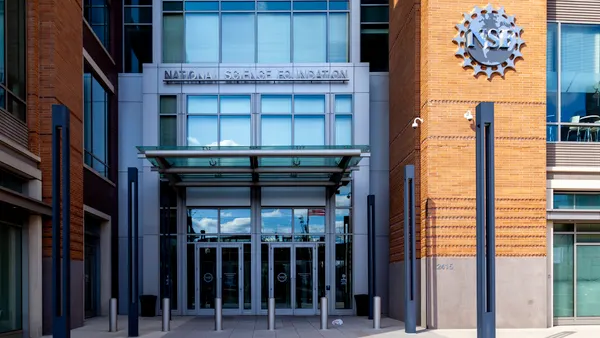Dive Brief:
- College students generally expect to earn more than they probably will, and having better information about earnings doesn't cause them to change majors. That's according to an issue brief published by a visiting scholar and an assistant research professor at Rutgers University in New Jersey, which also shows that students in business and STEM majors often had the most unrealistic expectations.
- The survey was completed in 2015 by nearly 5,000 Rutgers students who were given various amounts of labor data. It placed students in one of six broad fields of study and asked them what the chances were that they would complete degree requirements, what they thought they would earn five years after graduation, and how secure their jobs would be.
- Students with no wage information had the highest expectations about what they would earn, but those with median wage data still had unrealistic views of their salary prospects. "Students' choice of major is a highly complex process influenced by many factors, and this information on earnings alone is likely to be insufficient to substantially sway students' decisions," the report noted.
Dive Insight:
The report suggests what education experts are saying and other surveys are finding: That students need to be more sophisticated about their choices with regard to majors and careers and that institutions need to provide more information about potential jobs and improve career search tools and methods.
Many students aren't optimistic about how their education will pay off in the workplace. Only about one-third of the those surveyed by Strada Education Network and Gallup said they believe the skills and knowledge they graduate with will help them be successful in the job market and workplace. One likely reason for the uncertainty is that students must make many critical decisions as soon as they begin to consider postsecondary education, two education officials explained in The Hechinger Report last year.
"They must select majors for which they are fully prepared and that will lead to good jobs," wrote former U.S. deputy secretary of education and current Strada CEO William Hansen and Johnny C. Taylor Jr., then-CEO of the Thurgood Marshall Scholarship Fund. "They must decide how many courses to take in the first year to prevent academic overload and poor performance. These considerations and more require guidance — and critical, in-depth research on our part, so we can help all students reach their fullest potential."
Another report from the Georgetown University Center on Education and the Workforce called for states to "help students, their families, and employers unpack the meaning of postsecondary credentials and assess their value in the labor market," according to a press release. It notes that the number of degree programs and training options has risen sharply and that students are ill-equipped to decide among them.
The report recommends five areas to improve the flow of information to students, from better data and program alignment with jobs to improvements in counseling and career pathways. It gives examples of states taking major steps in this regard.
Although students in the Strada/Gallup survey had too-high expectations about STEM career salaries, a PayScale report recently showed that all but five of the 15 top-paying careers were in engineering and the others were in science, math and physics. That survey gathered data from 2.3 million college graduates last year.











